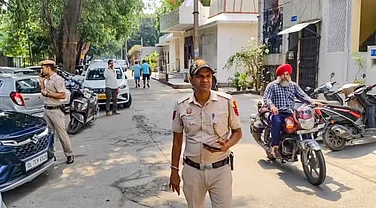Even as the debate on BT brinjal and other genetically modified crops rages on, Bangalore is engaged in hosting a unique event called Raita Teerpu or farmers' jury. The event began on November 30 and would wind up on December 5. This would be a forum where a select group of thirty farmers will scrutinise current agricultural research and modern farm practices, of which they have been mute end-users in recent decades. It would be a role reversal of sorts.
Without actually being prejudiced about who the accused is and who is being put on trial, a specialist witness panel of agricultural scientists; social scientists; representatives of industry bodies and government departments; members of farmers, consumers and civil society organisations are deposing before the jury and defending their interventions in agriculture in the recent years. After seeking necessary clarifications and carefully deliberating on various contentious issues, the jury will pronounce its verdict at the end of the six-day event. A five-member overseeing committee headed by M N Venkatachalaiah, the former chief justice of the Supreme Court, will ensure that the entire process is carried out in an impartial manner.
The farmers' jury is an effort of the Alliance for Democratising Agricultural Research in South Asia (ADARSA), which is supported by the International Institute for Environment and Development (IIED) in the U.K; Deccan Development Society (DDS) of Hyderabad; the Centre for Agriculture Media, Dharwad; Institute for Cultural Research and Action (ICRA), Bangalore and the Chipko in Karnataka. A similar effort of organising a jury had been made as early as 2001 in the Medak district of Andhra Pradesh.
Justice Venkatachalaiah says: "We are only providing a level playing field for two schools of agriculture, one that subscribes to modern technology and the other that retains trust in traditional methods to come on to a single platform and debate their differences. We are ensuring that there is a free presentation of views. I am not on any one side. Since we have no idea of what is good and what is bad, it is important to educate and understand each other. On complicated matters related to agricultural research we are often caught barking up the wrong tree and I hope this jury process, to an extent, will reduce such confusions. There is a tremendous amount of excitement about this."
Pandurang Hegde of Chipko puts the event in perspective by arguing that the time had come to uphold the concept of 'food sovereignty' as against 'food security' in India. "By sovereignty we mean the primacy of control by farmers over their food production systems. In the same vein, it has become very important to stake farmers’ claim over agricultural research. For a very long time, agricultural research had been seen as an expert domain and hence farmers were only at the receiving end of the research outputs. And every time something failed, farmers were blamed for their ignorance and inability to handle their agriculture. Never was the question asked: Was there something wrong with the research itself? As people say, the research had all the right answers but did they have the right questions? For me, personally, working on the environment appears very ad hoc if we do not take a holistic view of farming."
An interesting aspect of the jury is that the thirty farmers who have taken the chair have been carefully picked from out of five hundred shortlisted ones from across the state by an eminent steering panel. Of the thirty, nearly fifteen of them are women. There is adequate representation for Dalits as well as marginal farmers from dry land areas.
The verdict that this jury will deliver, of course, will not be binding on anybody, but as Justice Venkatachalaiah says: "It is a hugely symbolic act at a time when our thinking appears paralysed."
I hope to study the jury report after it is out on Saturday and present it in one of my future columns.
A Role Reversal
Even as the debate on BT brinjal and other genetically modified crops rages on, Bangalore is engaged in hosting a unique event called Raita Teerpu or farmers' jury where the farmers will scrutinise current agricultural research and modern farm practi

A Role Reversal
A Role Reversal
Published At:
-
Previous Story
 Puducherry Man Dies by Suicide, Blames Moneylenders For Huge Debt And Harassment
Puducherry Man Dies by Suicide, Blames Moneylenders For Huge Debt And Harassment - Next Story
MOST POPULAR
WATCH
×














